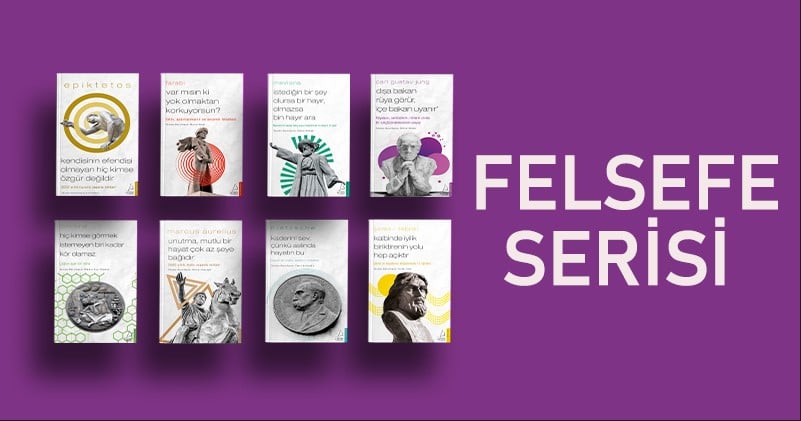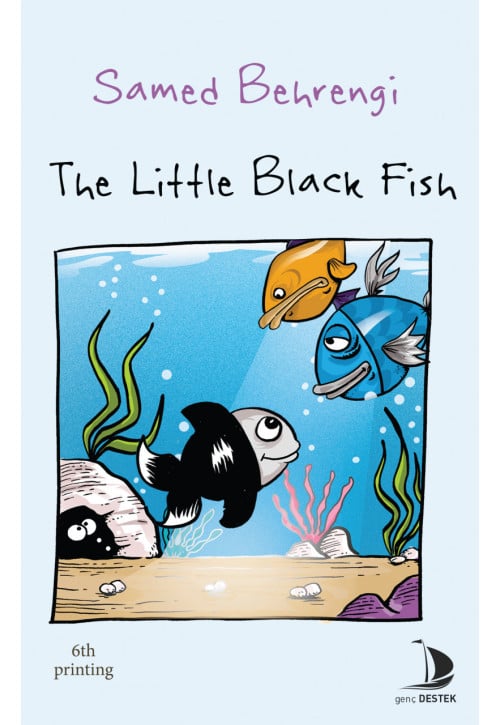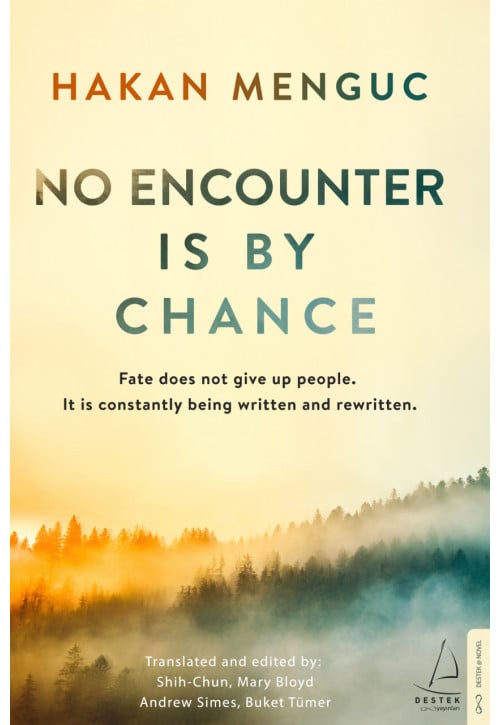 Destek Yayınları
Destek Yayınları
No Encounter Is By Chance
Fate does not give up on people. We are the decision-makers, the ones who shape our own fate. As one looks back, they may notice experiences where they do things they thought they would never do, put up with things they said they would never tolerate, or even fall in love with someone they thought they would never love. We might have been in situations where we thought we could not leave, but instead were able to walk away from; we might have days we felt like dying but still lived through. With every challenge overcome, we come closer to understanding our inner self. * * * A sufi went on a seven-day long journey with a young girl in order to help her find her life purpose. They did not bring anything but their faith in God with them. In this journey, they met amazing encounters and extrao...
 Destek Yayınları
Destek Yayınları
Nimm Dir Nicht Alles So Zu Herzen Oh Seele
"Die Kunst, die Herzen von Einflüsterungen zu reinigen und den Geist zum Schweigen zu bringen" Egal wie sehr der Mensch wie ein begrenztes Geschöpf scheinen mag, gleicht er einer endlosen Quelle, gar einer unglaublichen Schlucht. Mit seinem begrenzten Körper erlebt er eine unbegrenzte Welt und schlägt sich sein Leben lang mit Einflüsterungen herum, die ihm diese Welt unerträglich machen. Für jene, die nicht von ihrer Seele erzogen wurden, führen die Einflüsterungen, die ihnen das Leben zur Hölle machen, zu einer Reihe von physischen und psychischen Problemen und lassen die Erfahrungen, die sie auf diesem Weg erleben, wie unbedeutende Zufälle erscheinen. Jedoch ist es möglich, diese Einflüsterungen loszuwerden und zwar mit der Führung des Korans, der herabgesandt wurde, um dem Menschen Heil...
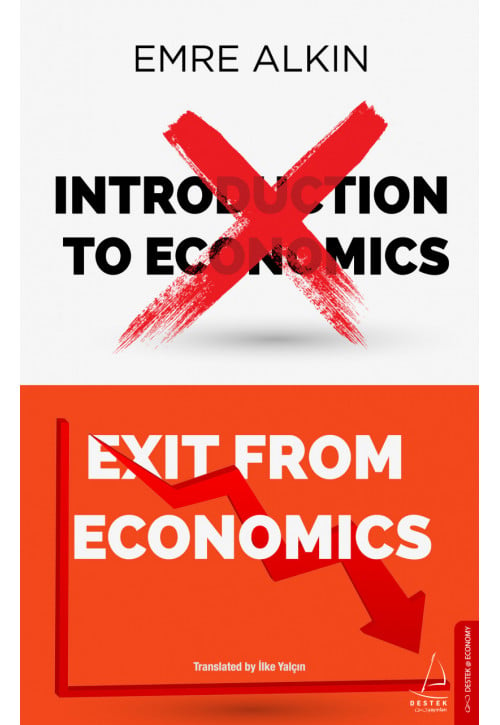 Destek Yayınları
Destek Yayınları
Exit From Economics
"Introduction to Economics" is the first course that introduces you to the fundamentals of economic reasoning. It involves rationality, mathematics and experience. Today, the notion no longer seems to be convincing. Generally, economics revolves around a central concept called homo economicus which refers to a prototype of a rational, economic human being. In other words, it describes an individual who acts independently and who tries to match limited resources to unlimited needs. Nonetheless, this rational being does not exist anymore. We are living in a world full of people who spend more than they earn, confuse needs with desires, "sacrifice their future happiness for familiar unhappiness". How did we become like this? When and why did the economics lose this rational human being? What ...
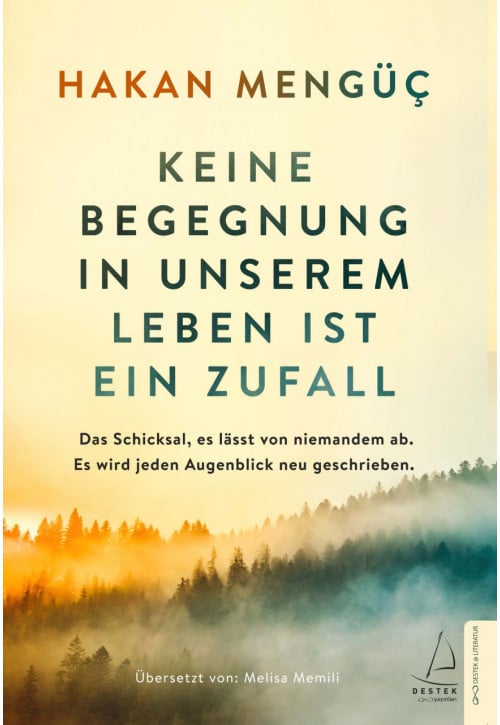 Destek Yayınları
Destek Yayınları
Keine Begegnung İn Unserem Leben İst Ein Zufall
Das Schicksal, es lässt von niemandem ab. Es wird jeden Augenblick neu geschrieben. Manchmal geschehen solche Dinge, dass du Sachen tust, die du dir niemals hättest vorstellen können. Dass du Dinge erträgst, die du dir niemals hättest ausmalen können. Dass du liebst, was du niemals gedacht hättest lieben zu können. Dass du einfach gehst, obwohl du dir das niemals hättest denken können. Und, dass du sagst, dass du gestorben bist, aber trotzdem lebst. * * * Ein Sufi, der sich selbst finden will und ein junges Mädchen, das versucht, den Lebenssinn zu finden, begeben sich auf einen langen Weg, ohne zu wissen, was auf sie treffen könnte. Sie haben nichts, dem sie vertrauen können, außer ihrem Schicksal. Die jungen Zwei begeben sich auf eine siebentägige Reise, ohne auch nur Geld, eine Kreditkar...
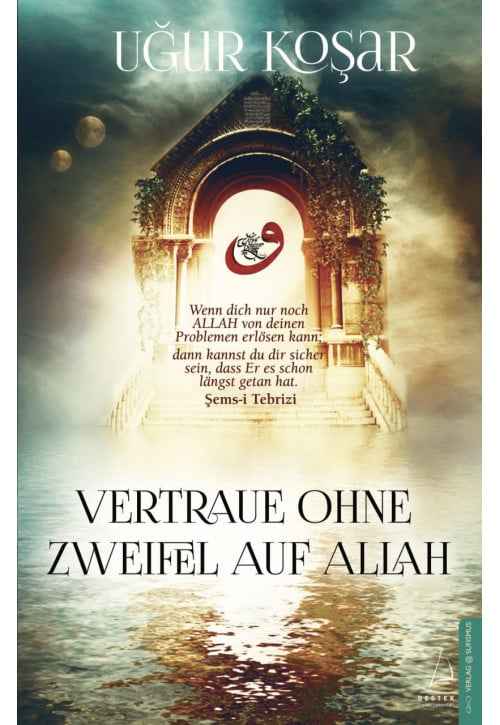 Destek Yayınları
Destek Yayınları
Vertraue Ohne Zweıfel Auf Allah
ALLAH weiß über alles Bescheid. Glaubt ja nicht, dass Er unachtsam dessen ist, was ihr an Ungerechtigkeit zu verspüren bekommt. Denn ALLAH ist zu seinen Geschöpfen barmherziger, als eine Mutter zu ihrem Kind. Ohne die Gegenleistung deines Gebetes zu verfolgen: Vertraue Ihm all deine Sorgen und Angelegenheiten an und hinterfrage Seinen Willen und Seine Entscheidungen nicht! Denn ein Diener kontrolliert seinen Schöpfer nicht! Und gewiss, zweifelt er auch nicht an Ihm! Du kannst dir sicher sein: Wenn du dich ALLAH mit vollkommener Ergebenheit näherst, kommt Er dir mit Gnade und Segen entgegen. Und genau das, wirst du dann tief in deinem Herzen zu verspüren bekommen. Du hast so viele Menschen in deiner Umgebung, die ihr wahres Ich verstecken und hinter einer Maske leben. Diese "falschen Gesich...
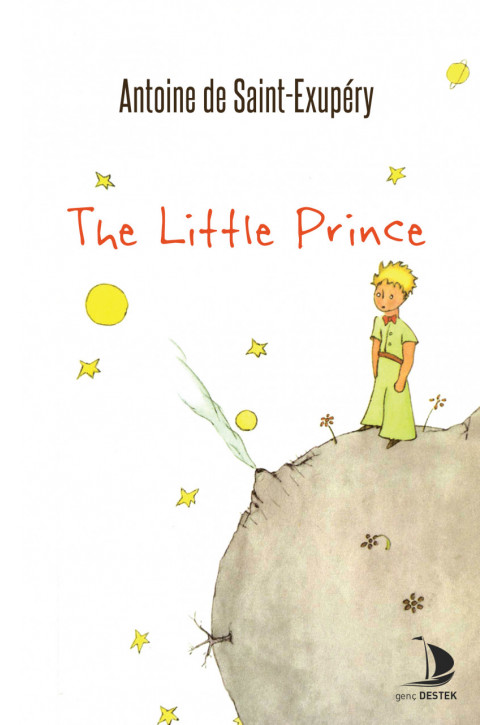 Genç Destek Yayınları
Genç Destek Yayınları
The Little Prince
"So when you look at the sky at night, it will be as if all the stars were laughing; as though in one of the stars I live and I will be laughing…You will have stars that know how to laugh!" And he laughed again. "And when your sorrow is comforted (with time all sorrows pass) you will be glad that you have known me. You will always be my friend. You will want to laugh with me. And you will open your window, and your friends will be surprised to see you laughing as you look up at the sky! Then you will say to them, ‘Yes, the stars always make me laugh!’ And they will think you are crazy. It will be my little joke that I will have played on you…"
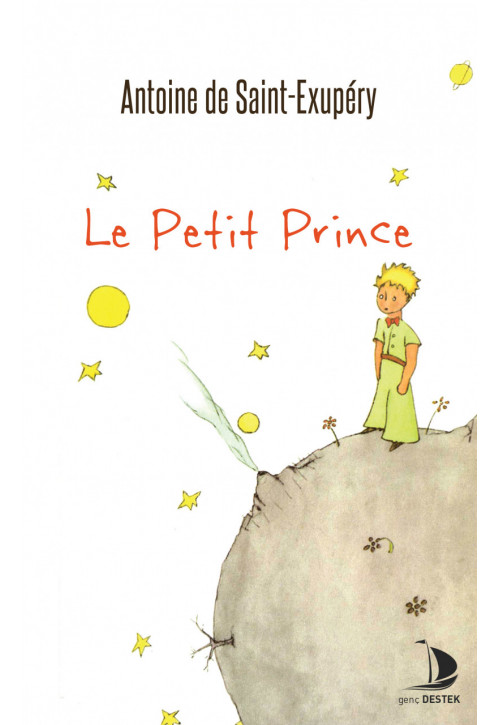 Genç Destek Yayınları
Genç Destek Yayınları
Le Petıt Prınce
"Alors quand la nuit tu regardes le ciel, il sera comme si toutes les étoiles riaient… Pourtant dans l'une des étoiles je vis et je rirai. Tu auras des étoiles qui savent comment rire!" Il ria encore. "Et quand ta tristesse est consolée (avec le temps toutes les tristesses passent), tu sera ravi de m'avoir connu. Tu seras toujours mon ami. Tu voudras rire avec moi. Tu ouvriras ta fenêtre, et tes amis seront surpris de te voir rire pendant que tu regardes le ciel! Ensuite tu leur dira ‘oui, les étoiles me font toujours rire!’. Et ils penseront que tu es fou. Ca sera ma petite blague que j'ai joué sur toi…"
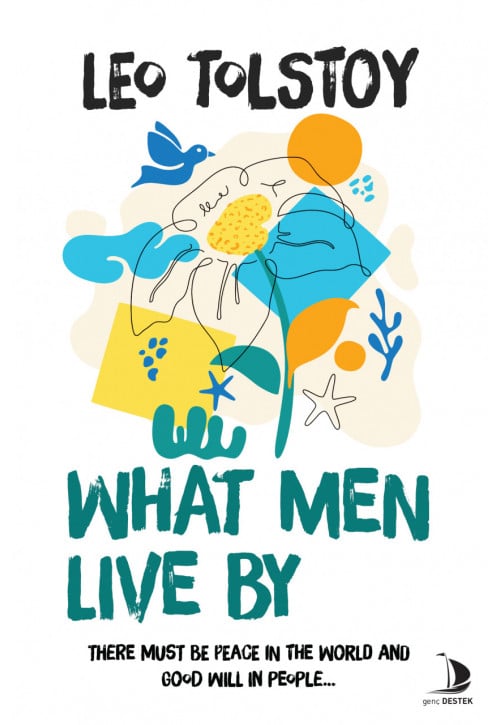 Genç Destek Yayınları
Genç Destek Yayınları
What Men Live By
Remember; There is only one moment that matter, and that is now. Because it is the only one we can rule over... Lev Tolstoy, the author of masterpieces such as Anna Karenina, War and Peace, and Resurrection, spent the last thirty years of his life working on subjects such as human beings, family, religion, state, society, freedom, rebellion and aesthetics. In the works he produced during this period, he addressed human problems within a literary fiction. What Men live by? stating that the most important virtue that an individual should have is love, the great writer was inspired by holy book texts and folk tales and invited humanity to truth. Tolstoy, who left very important works in world literature, has managed to reach readers of all ages.
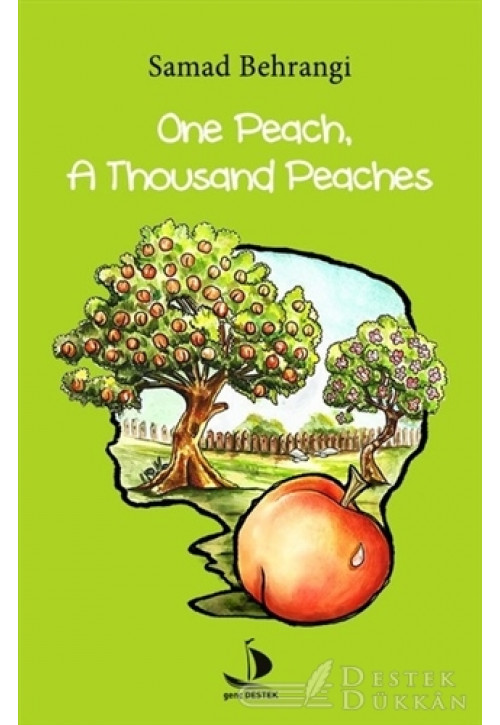 Destek Yayınları
Destek Yayınları
One Peach, A Thousand Peaches
Samad Behrangi (24th July 1939 - 31th August 1967) was an Iranian teacher, social critic, folklorist and short story wirter. He was best known for his story called The Little Black Fish. He portrayed the lives of the children of the urban poor and used allegorical themes and symbols to criticise the Shah’s regime in his stories. He died at the age of twenty eight. Throughout his short life he had always tried to teach children about life and he had never given up teaching.One Peach, A Thousand Peaches is a story of a friendship between two poor boys and a peach tree. Sahip Ali and Polat find a peach in the landlord of the village’s garden which is protected by a greedy gardener, and they decide to plant its seed. However, one day life separates them and the peach tree whose only aim is to ...
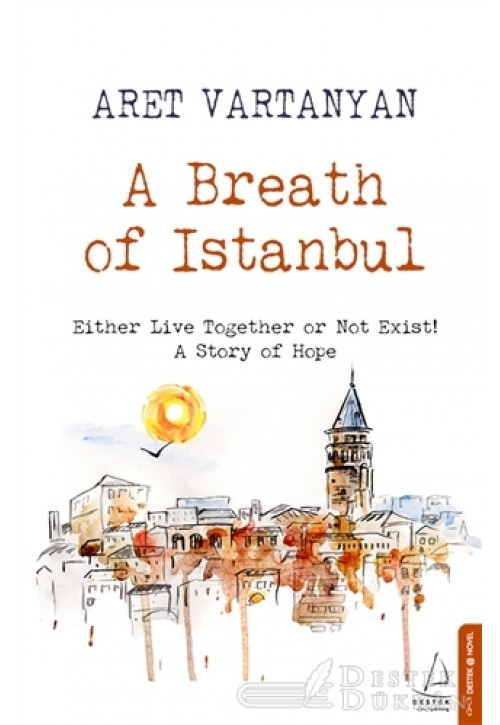 Destek Yayınları
Destek Yayınları
A Breath Of Istanbul
Within these pages, we experience Istanbul life,the “you and me” that is this place’s heartbeat. Around us swirl the amazing colors of many rainbows and dozens of scents. Here the Istanbulites-Armenian, Greek, Kurdish, Jew, Alawite, Christian, the rich, the poor, the conservative, the marginal-all bear witness to Istanbul’s many-faceted selves. This novel of hope is a small reflection of what some people call “utopia” and is foremost a story about living in harmony.Lose yourself in İstanbul’s streets while wandering with me as we explore you, me, our lives, our loves, our unfulfilled feelings and wishes, our dreams, fears, hopes, loneliness, struggles, and the daily ups and downs of our fellow millennials. The meaning of İstanbul, Turkey, and the world is “you” for me. They are all “me” an...
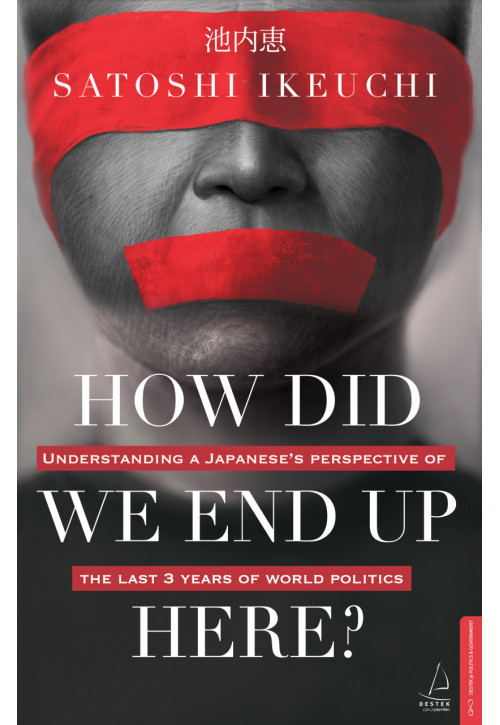 Destek Yayınları
Destek Yayınları
How Did We End Up Here
The columns in this volume are chronicles of the transformation of the Middle East order from a Japanese point of view in a peculiar moment of history when the humankind has been experiencing a great transformation and turning points. The book is going to be a searchlight which light the path of the international politics in the Middle East and East Asia, in which a steady change is going on and accelerated under the dark night of COVID-19 pandemic. Satoshi Ikeuchi is Professor of Religion and Global Security at the Research Center for Advanced Science and Technology (RCAST) of the University of Tokyo. He specializes in the Middle East politics and organizes the RCAST Open Laboratory for Emergence Strategies which is the meeting point of research on the international and regional studies.
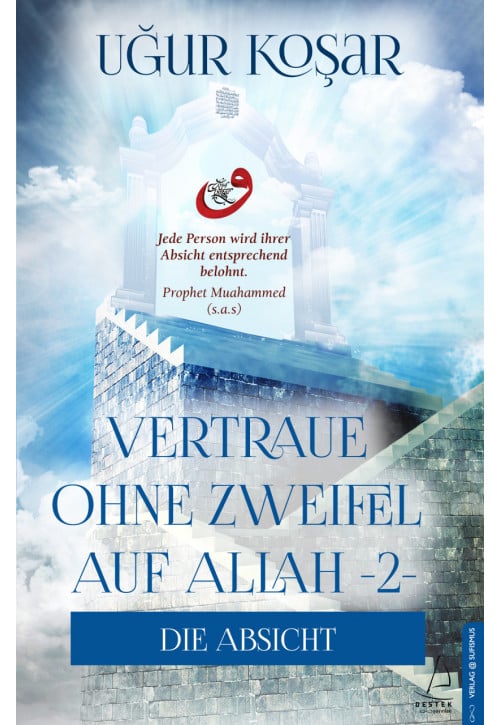 Destek Yayınları
Destek Yayınları
Vertraue Ohne Zweifel Auf Allah-2
WAS DIR ALLAH GIBT, HÄNGT VON DEINER ABSICHT AB Allah hat den Schlüssel aller Schätze in Deine Hand gelegt. Du kannst deren Türe mit Deinem Gebet öffnen, wann immer Du willst. Wenn Du möchtest, kannst Du die Türen des Himmels öffnen und die lebenschenkende Regenfälle auf die Erde herunterlassen. Nur nicht gleich die Hoffnung aufgeben, wenn Du siehst, dass Deine Wünsche nicht sofort in Erfüllung gehen. Allah hält die Lösung schon bereit, bevor das Problem entsteht. Manchmal entfernt das Leben all Deine Träume von Dir... Das bedeutet, dass Allah (cc) Deine Stimme hören wollte. Unverzüglich machst Du Dein Herz und Deine Hände auf und suchst Zuflucht in Halik (dem Schöpfer), Der Dich aus dem Nichts erschaffen hat. Was für ein schönes Treffen… Es ist der Moment, in dem das Herz die wahre Liebe ...
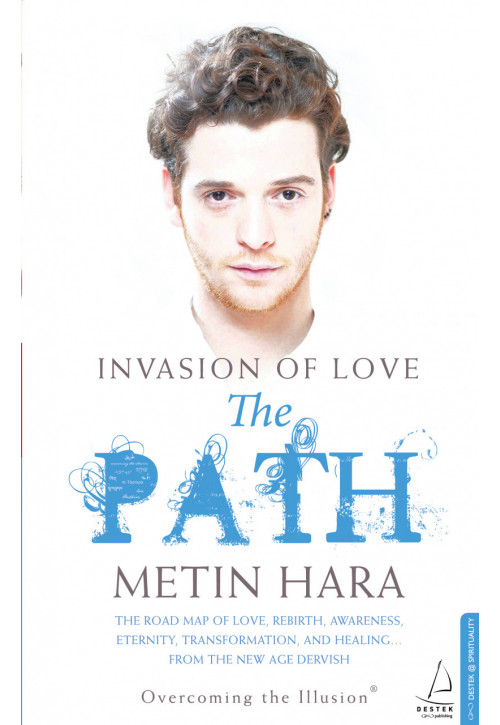 Destek Yayınları
Destek Yayınları
Invasıon Of Love - The Path
This "Invasion of Love" series, comprised of three books, will create a brand new "invasion movement" in the world. The book you are holding in your hands is the 1st book in this series, and it is your first step… "The Path" "The Path" is a journey of love… That begins with you and ends with you… It is a journey upon which an apprentice sets forth, The breath of a nay player, A lover's heartbeat, A child's smile, A seed reuniting with the soil… It is the roadmap depicting an utterly different world, One that you have dreamt of within the depths of your heart… This is not simply a book imparting knowledge. These pages have been designed to alter your life. Everything in this book has been put together meticulously-from the practical applications to the breathing exercises, from




